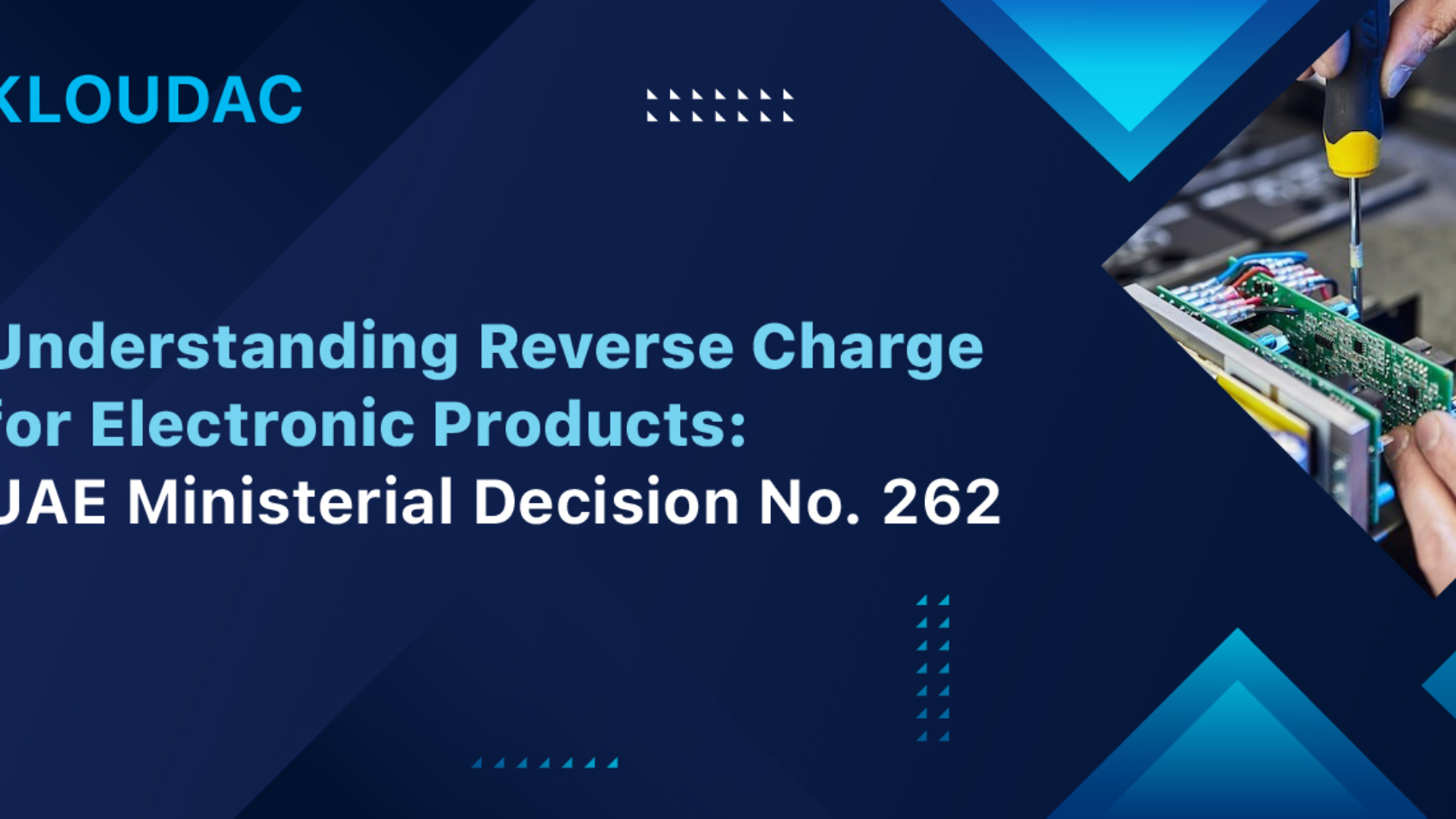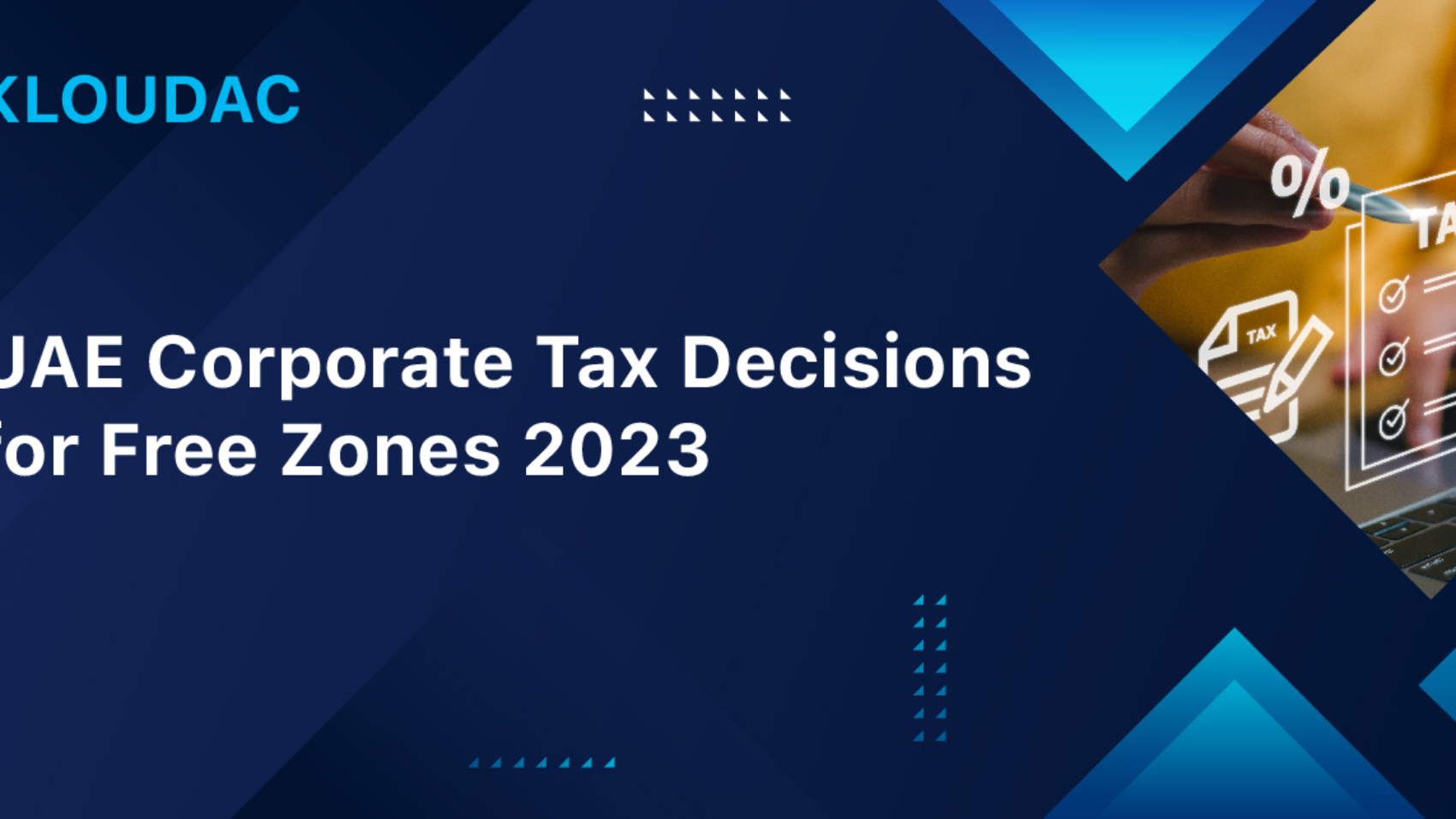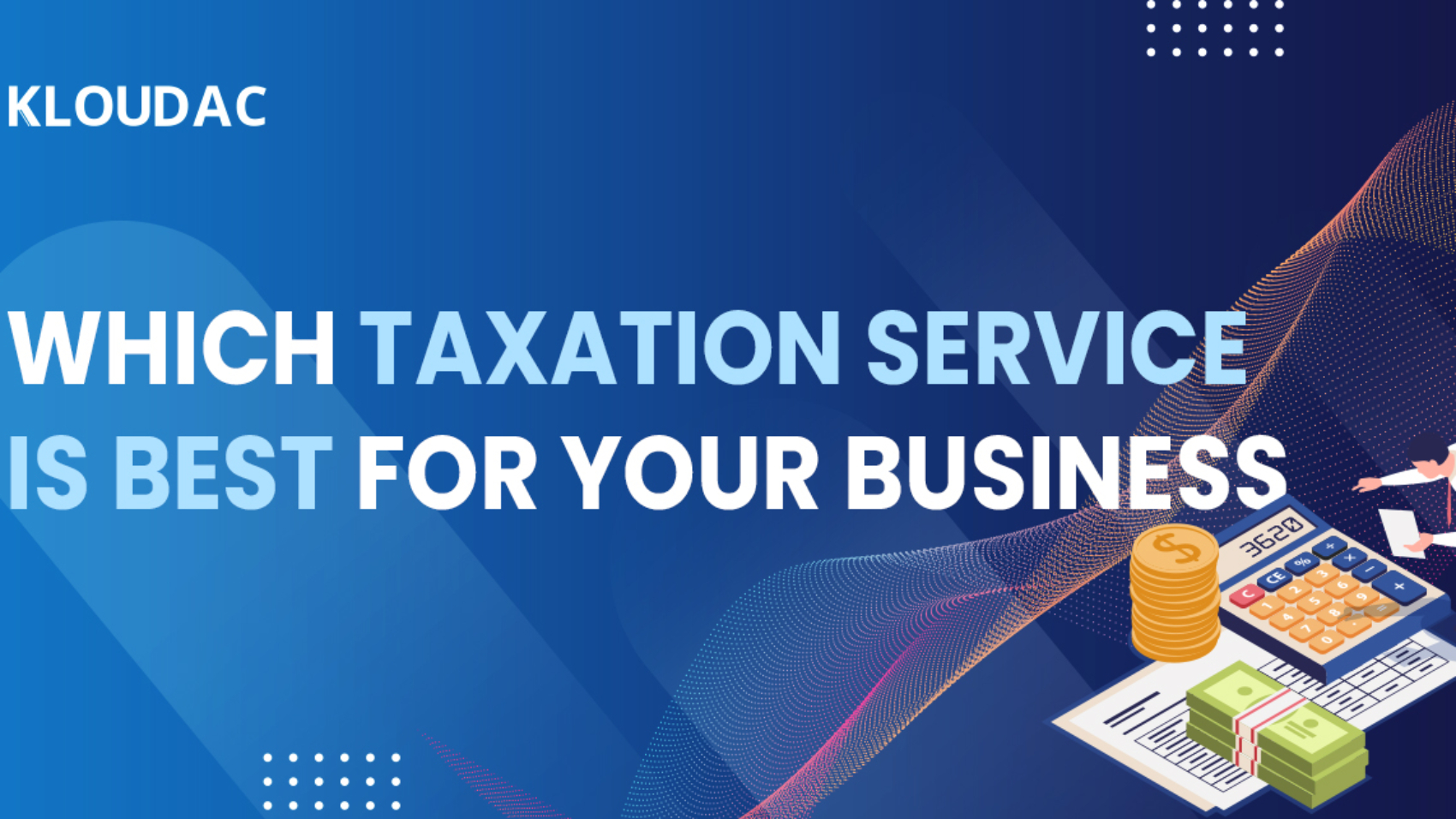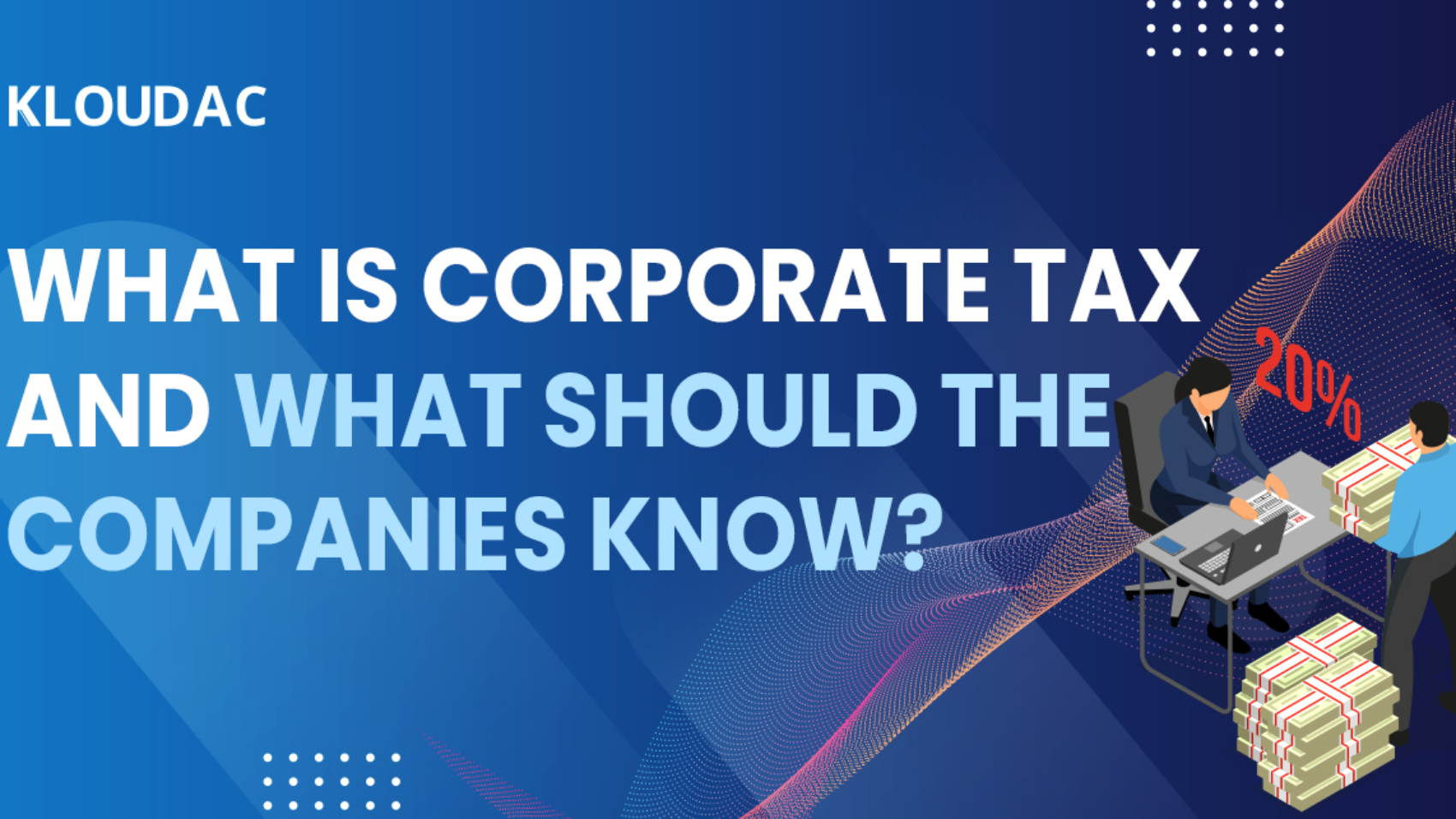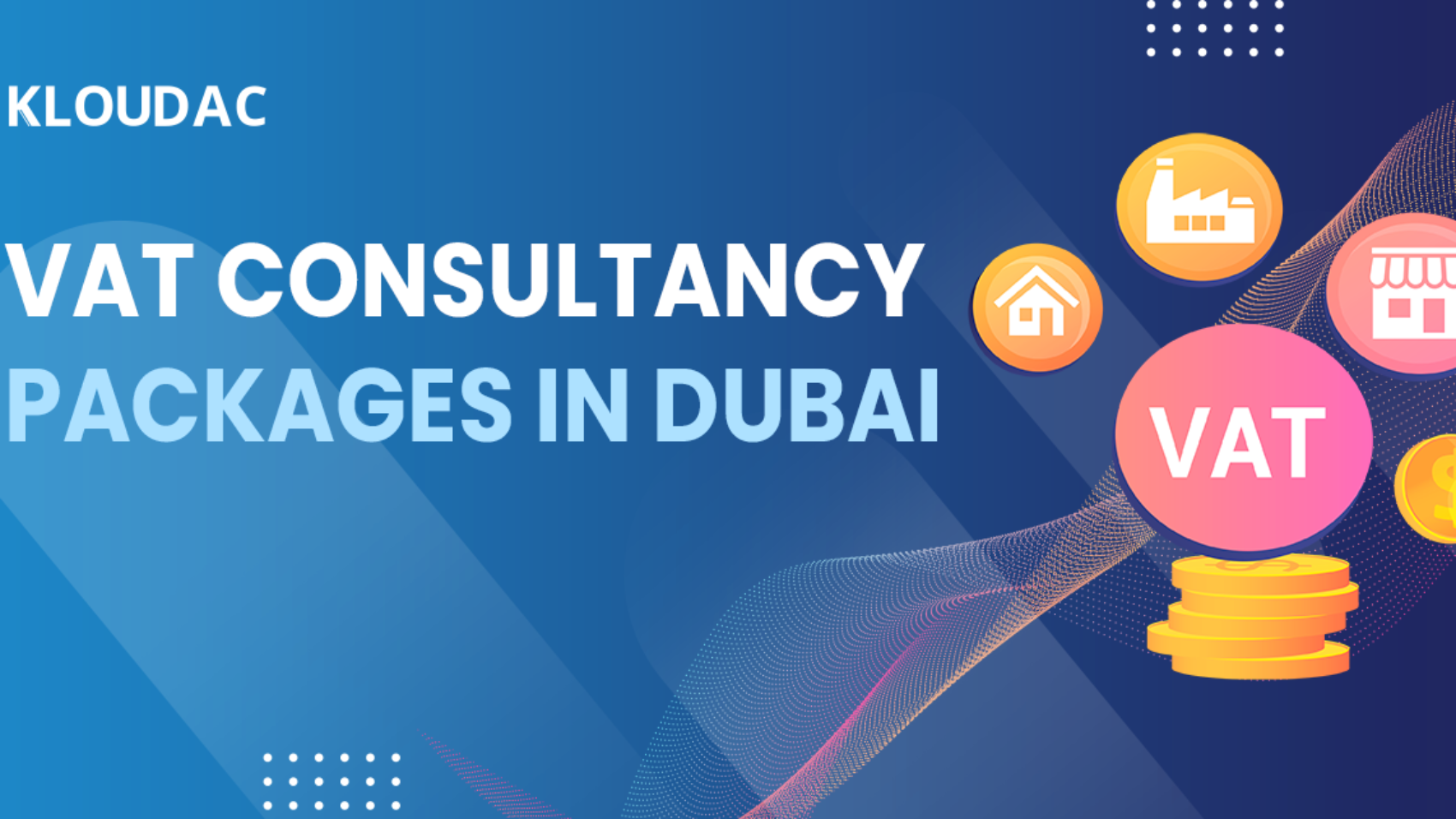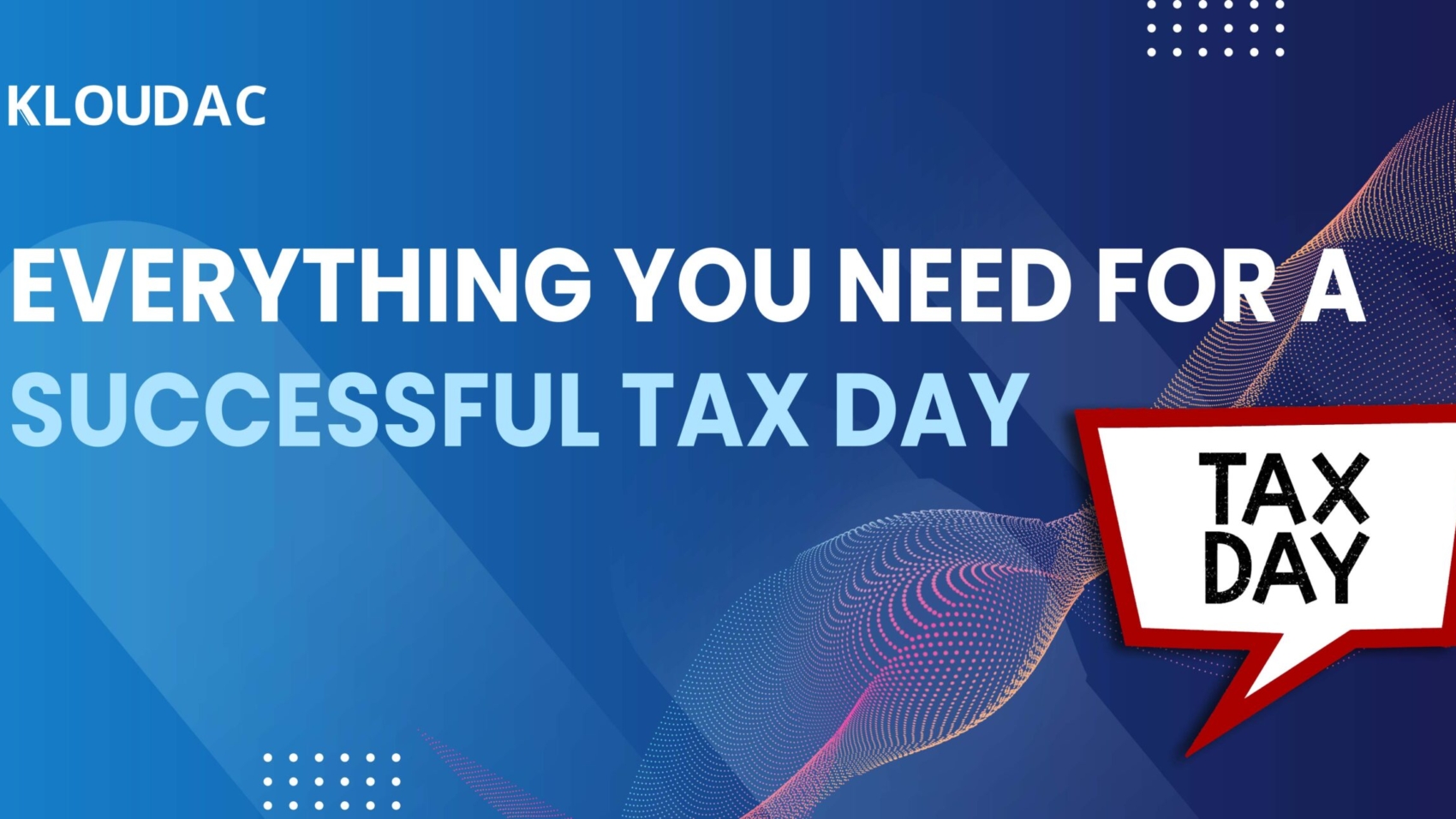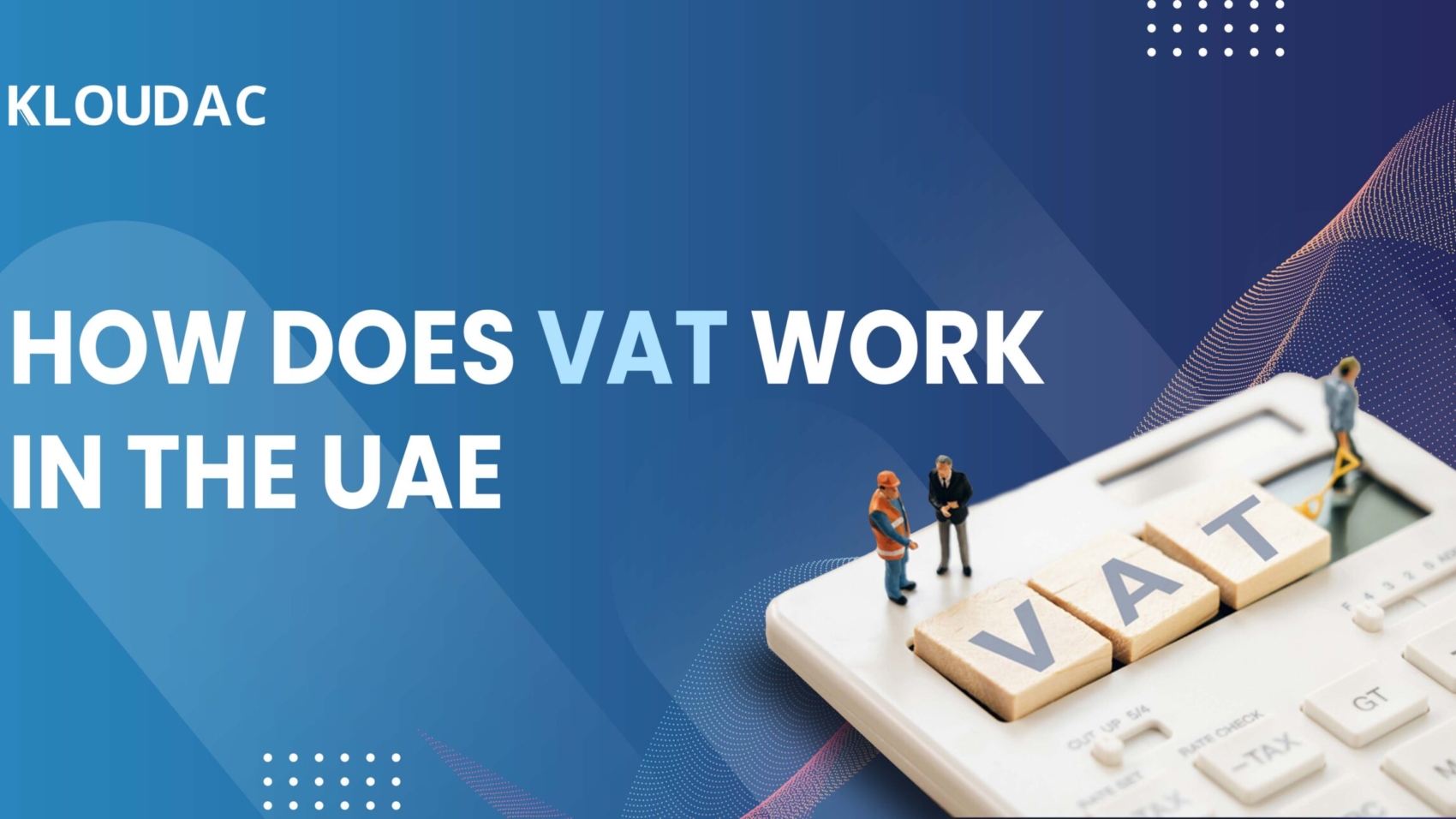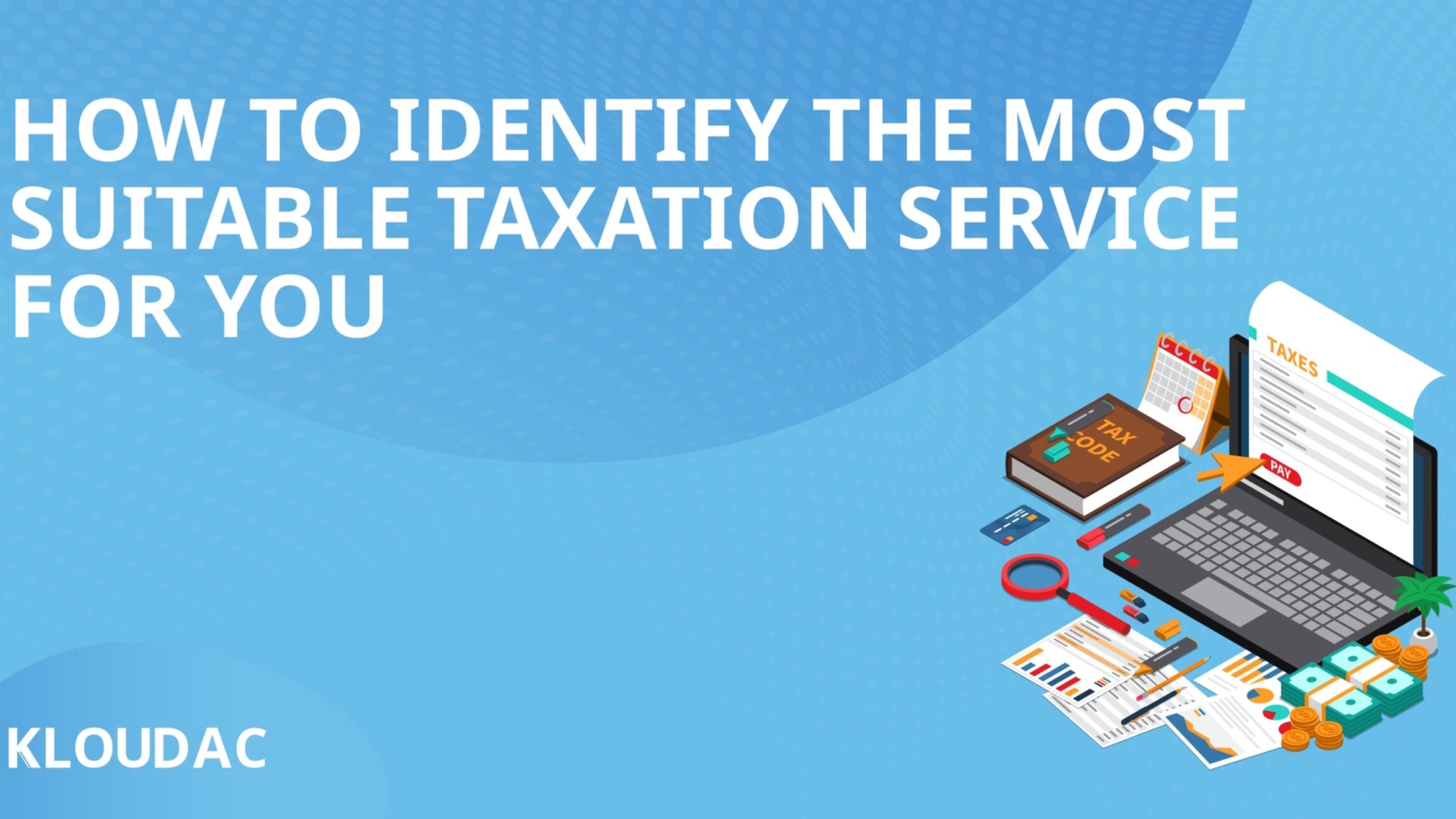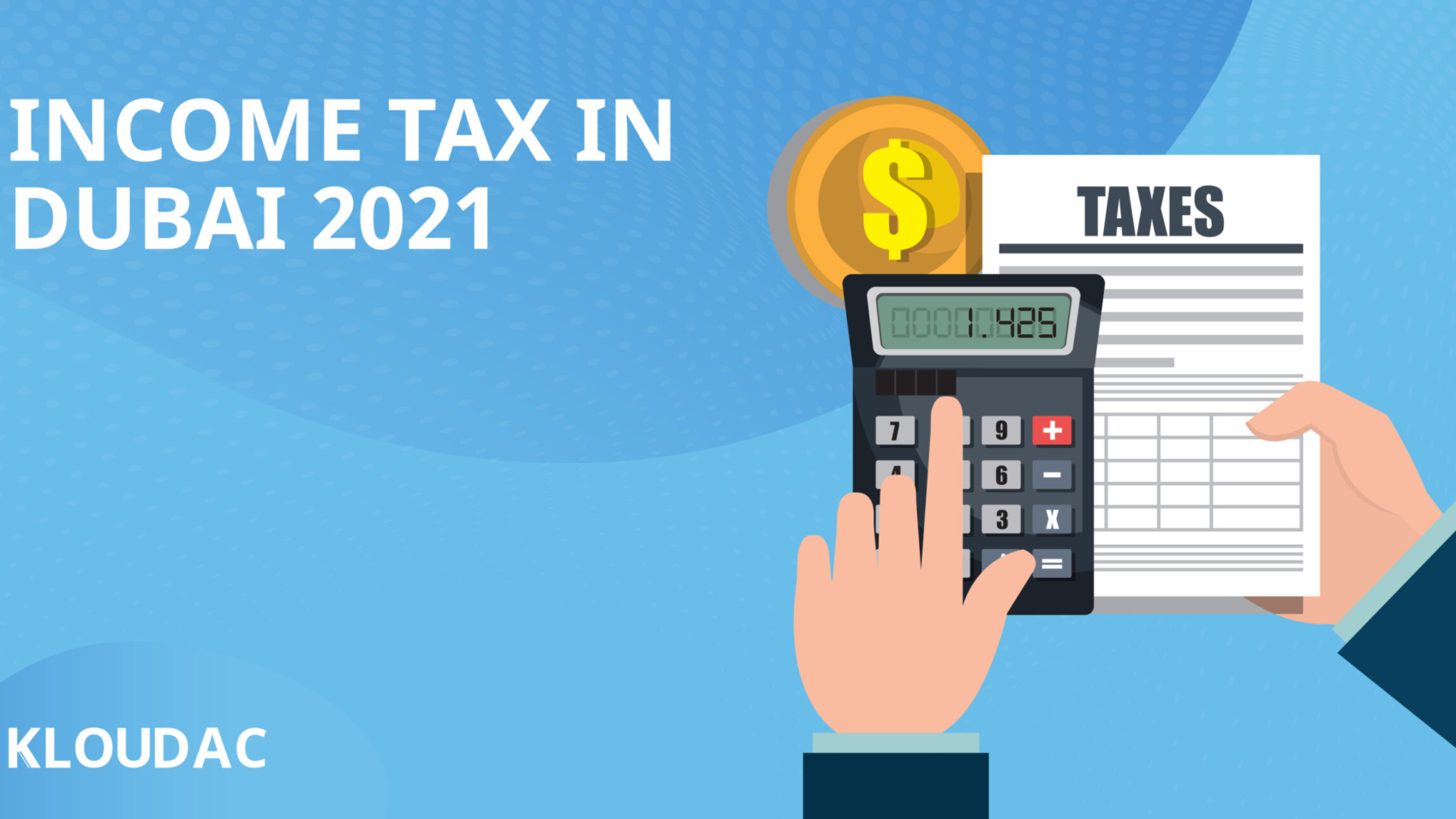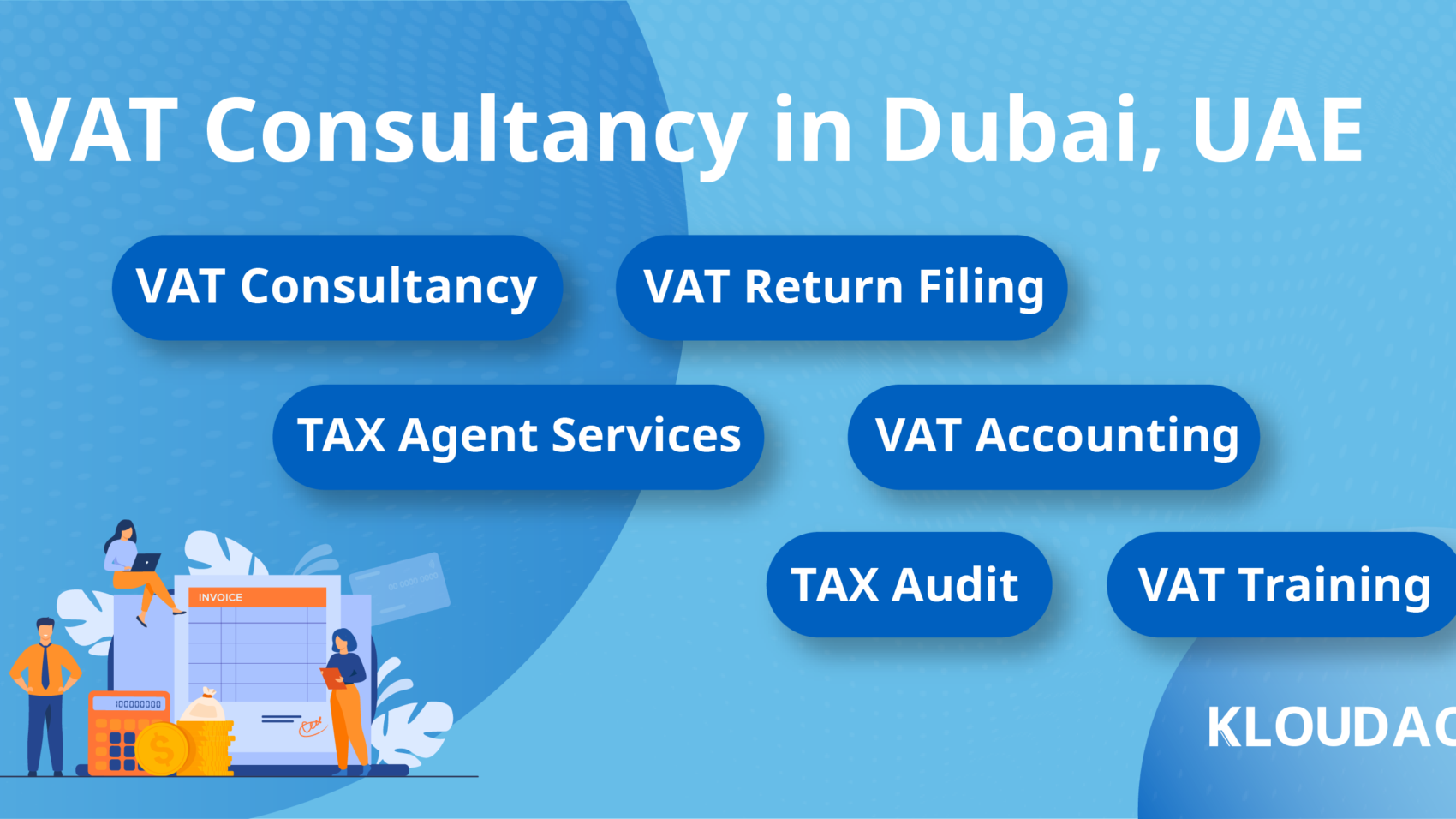In a bid to adapt to the ever-evolving landscape of electronic commerce, the United Arab Emirates (UAE) has introduced significant changes through Ministerial Decision No. 262. This decision, which pertains to the implementation of the reverse charge mechanism for electronic products, marks a pivotal moment in the UAE’s efforts to streamline taxation in the digital realm.
In this blog post, we will unravel the intricacies of Ministerial Decision No. 262 and explore how it impacts businesses involved in the electronic products sector.
Understanding Reverse Charge Mechanism
The reverse charge mechanism is a taxation concept wherein the responsibility for reporting and remitting the value-added tax (VAT) is shifted from the supplier to the recipient of the goods or services.
This mechanism is typically employed to enhance tax compliance and address challenges associated with cross-border transactions, especially in the realm of electronic commerce.
Scope of Ministerial Decision No. 262
Ministerial Decision No. 262 specifically targets electronic products and the application of the reverse charge mechanism. Electronic products encompass a broad spectrum, ranging from digital services to software, e-books, mobile applications, and more.
The decision aims to ensure that VAT is appropriately accounted for in transactions involving electronic products, aligning with international best practices and fostering a level playing field for businesses in the digital space.
Key Provisions and Implications
Recipient’s Responsibility
Under the reverse charge mechanism outlined in Ministerial Decision No. 262, the responsibility for accounting and remitting VAT shifts to the recipient of electronic products. This means that the recipient must report the VAT amount on their VAT return, effectively taking on the role of both the buyer and the taxpayer.
Foreign Service Providers
The decision extends its reach to foreign service providers supplying electronic products to recipients in the UAE. In such cases, the reverse charge mechanism applies, placing the onus on the UAE-based recipient to account for and remit the VAT on these transactions.
Impact on Businesses
Businesses involved in the supply chain of electronic products need to adapt their accounting and compliance procedures to accommodate the reverse charge mechanism. This includes updating invoicing processes, accounting systems, and ensuring that VAT is accurately reported and remitted in accordance with the new regulations.
Compliance and Penalties
Stricter compliance measures are expected with the introduction of Ministerial Decision No. 262. Businesses failing to adhere to the new provisions may face penalties and fines. It is crucial for businesses to stay informed, seek professional advice, and implement robust compliance measures to avoid any legal repercussions.
KLOUDAC Accounting Firm Dubai, UAE
Ministerial Decision No. 262 reflects the UAE’s commitment to modernize its tax framework, particularly in response to the challenges the digital economy poses. As businesses operating in the electronic products sector navigate these changes, proactive adaptation and compliance will be essential. KLOUDAC helps you Stay informed about the nuances of the reverse charge mechanism, engaging with tax experts, and updating internal processes will position businesses for success in the evolving landscape of electronic commerce in the UAE.
